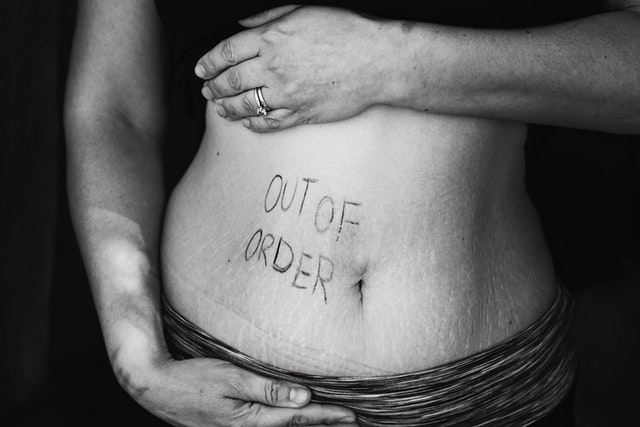
Autumn Season: 7 Tips to Balance Vata Dosha
Autumn is Vata Season
Autumn is here! At the beginning of autumn, when the air is still mild and the sun is still strong, a gentle Pitta prevails, which strengthens and warms us. As time progresses, the typical Vata weather begins: it storms, the temperatures drop, the sun is often hidden behind thick clouds. Vata has i.a. the characteristics of being cold, rough, dry and flexible and this is exactly what the weather in the cool and often stormy autumn describes. Not only do these traits dominate our outdoor environment while we’re snuggled up in the warmth of our homes with a cup of tea, they also affect the balance of the doshas in our bodies. Irrespective of our very own dosha mixture, which determines our constitution, the Vata increases in all people at this time.
Particularly affected are people who have either a Vata constitution or a Vata mixed constitution, or a Vata disorder.
An increase in Vata Dosha can lead to symptoms like: dry skin, hyperperistalsis, bloating, cramps, hypermobility, constipation, depression, difficulty sleeping through the night, anxiety and panic attacks, mental circles, hemorrhoids, pain, arthrosis, tinnitus.
However, Vata Dosha disorders in autumn are easier to avoid than you think.
7 Tips to Balance Vata Dosha
1. Always Stay Warm
The cold very quickly imbalances the Vata Dosha. But this is avoidable.
- Always wear socks.
- Lie down in bed at night with a warm bottle on your feet.
- If possible, eat a warm meal 3 times a day.
- Sweaters and scarves protect you from the cold wind.
- Small amounts of hot spices warm the body.
- Eat warming foods e.g. beets, carrots, hazelnuts, cashews, root vegetable soup with nutmeg, herbal teas, ginger, Ceylon cinnamon, etc.
2. Enjoy Spices
Certain Vata Dosha reducing spices ground the body, improve digestion and boost the immune system. Season your food with spices such as:
- Cardamom
- Black pepper (in moderate amounts, even better the long pepper = Pippali)
- Turmeric
- Ceylon cinnamon
- Cloves
- Nutmeg and mace
- Fennel (lowers Vata through the bloating effect)
- Coriander
- Thyme or ajwain seeds
- Mustard seeds (ideally yellow)
- Asafoetida (Hing)
- Cumin
- Ginger and galangal
3. Sweet, Sour and Salty Lower Vata Dosha
Food is a powerful remedy. Food can either increase or balance the doshas (functional principles / bio-energies of the body). Vata is pacified with sweet, sour and salty foods and flavours.
Sweet (Earth + Water)
Sweet food grounds the body, calms it down, increases kapha and increases vitality. Examples: berries, apples, carrots, cinnamon, cardamom, pumpkin, beetroot, milk, rice, maple syrup, honey in small amounts, cashew nuts – but beware, raw and whole grain foods increase Vata again.
Sour (Earth + Fire)
Sour foods warm the body, increase appetite, improve digestion, and hydrate. Examples: lemon, buttermilk, yoghurt, grapes, berries, sourdough, tangerines, vinegar, ideal also tamarind, amalaki, verjuice (wine & co) as a mild substitute for vinegar.
Salty (Water + Fire)
Salty foods hydrate and warm the body, improve digestion, and aid in detoxification. Examples: sea salt, rock salt, seaweed and soy sauce.
TIP:
If you have a Pitta imbalance you need to be careful with sour and salty foods as they can aggravate it. The same applies for Kapha imbalances that can get worse by sweet, sour and salty foods.
4. Drink Enough Fluids and Eat Enough High-Quality Oils
How’s your skin doing in cold weather? Is she dry yet?
Dryness is a dominant Vata quality. And a dry body is not only a consequence of Vata imbalance, but also a cause. It is therefore important to pay attention to the amount you drink, especially in autumn. Drink 2 liters of warm water in 200ml portions (10 small glasses) during the day.
Furthermore, the use of enough high-quality oils is important to moisturize your body from the inside out. The dry body can benefit from oily food. Ghee (clarified butter), sesame and olive oil protect the body tissues from dehydration and reduce Vata.
Vata types can enjoy foods high in water in the fall, such as zucchini, warm milk, berries, oatmeal, soups, and grapes.
In addition, a daily self-massage of the whole body with warm sesame, olive or ashwagandha oil does not only calm the nervous system and moisturize the skin but also lowers anxiety and stress. Rinse off with hot water about 15 minutes later or put on a pyjama and let it soak in overnight.
5. Herbal tea instead of coffee
Coffee is not essentially unhealthy. But in Vata disorders it is best avoided. Because coffee and other caffeinated drinks dry the skin and body, stimulate the nervous system and imbalance the Vata Dosha.
Much better for the body and brain are warm teas with Vata-reducing herbs like: ginger, cinnamon, fennel, thyme and licorice for the day. Herbs like lavender, chamomile, brahmi, lemon balm, and vanilla make fantastic bedtime teas for vata.
6. Regularity for the Vata Dosha
Regularity is opposed to Vata, the dosha of changeability. It increases the earthy Kapha Dosha and brings stability, harmony and calm. How can you bring more regularity into life?
Fixed times for going to bed (before 10 p.m.), getting up (preferably before 6 a.m.), regular eating times and relaxation rituals in the evening e.g. oil massage, walking, yoga, meditation, breathing exercises, aromatherapy and quiet music help to slow down in the evening and have deep sleep.
7. Let The Soul Dangle
Have you noticed that with Vata excess, it is clearly more difficult to simply let go, to think of nothing for once? It’s even worse in cold and dry weather. Here are a few tips:
- Take time for yourself.
- Don’t start the day with your cell phone or computer, but do light physical exercises. It grounds the body and clears the mind.
- Oil massage (Abhyanga) with sesame or ashwagandha oil is very relaxing and stabilizes the Vata energies.
- Avoid overworking yourself. If possible, avoid working late into the night as the evening is the perfect time for reflection and relaxation.
- Vata types should definitely get enough sleep, around 8-9 hours.
- Daily meditation is a powerful relaxation technique.
If you want to dive deeper into the self-care habits of Ayurveda that help you to feel balanced, energized and grounded, join us for the upcoming Easy Ayurveda Detox or join the group program for women HORMONE THRIVE.
Have a nice autumn darling!

